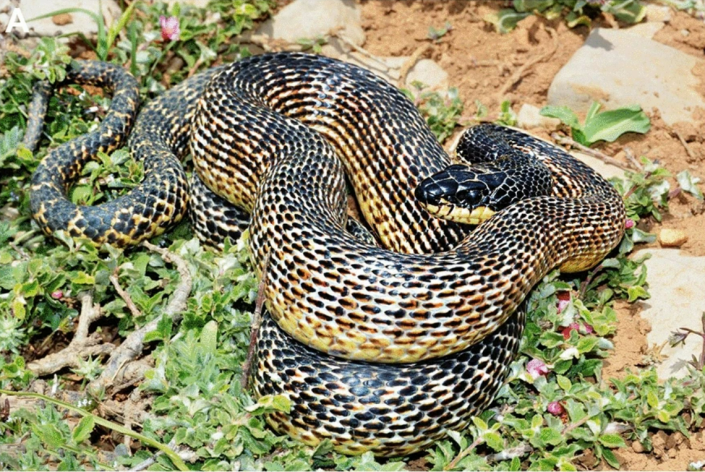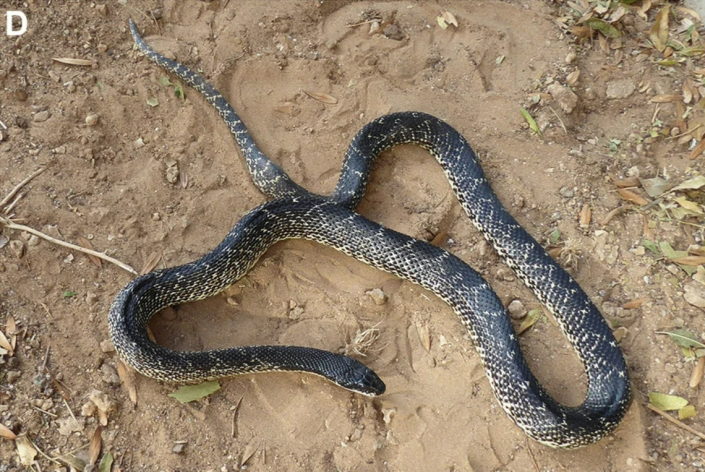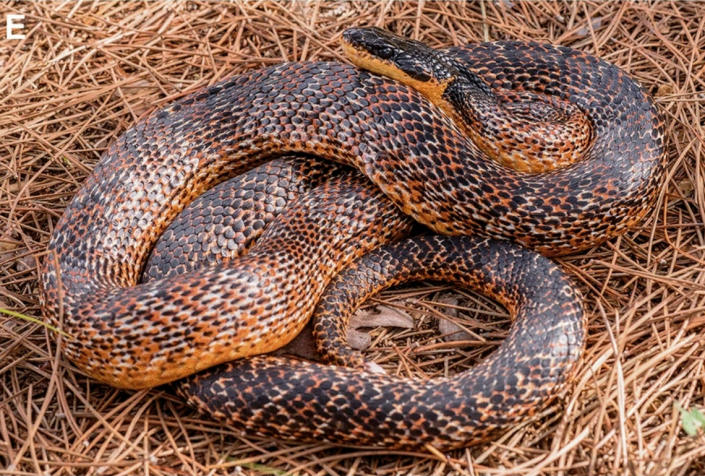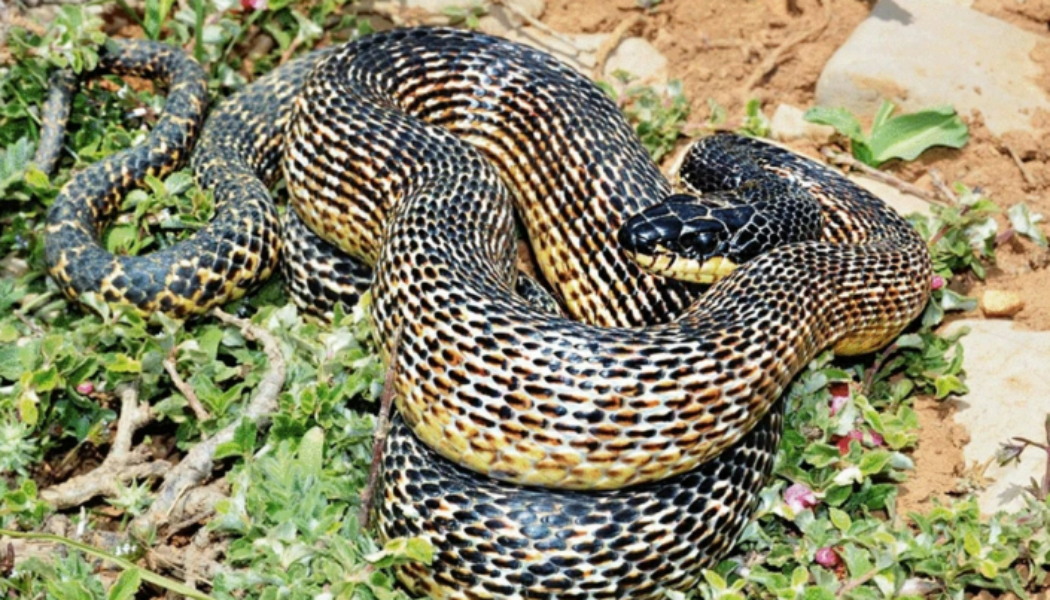Hiding in the mountains of the Middle East, a mysterious creature went undetected. The animal was spotted on rare occasions but never identified — until now.
The “first well-verified record” of the “rare” reptile was in 1967, according to a study published in Scientific Reports. The unusual specimen was taken to a museum for safekeeping. The animal has been sporadically spotted ever since but routinely misidentified, researchers said.
Compiling this “scattered information” from museums and obtaining several samples of DNA, researchers discovered the unknown creature was a new species: the Levant rat snake or Elaphe druzei.
The Levant rat snake has a solid black head with a yellowish body and pattern with “oval black brown blotches,” the study said. They can grow up to about 6 feet long with males growing larger than females.

The Levant rat snake was distinguished from other known species by DNA analysis as well as a number of characteristics, including body and genitalia shape, scale pattern and coloring, the study said. Previously, researchers said the newly described reptile was confused as other species despite not looking overly similar.

Researchers documented several variations of coloring in Levant rat snakes. Photos show the snakes from Israeli-controlled Mount Hermon have a yellow-white coloring while snakes from Lebanon have an orange coloring.
Although large and distinctly colored, Levant rat snakes can be “well hidden” in their natural habitats, the study said.

The new species has a small distribution range across the mountains of Israel, Lebanon and Syria, a “politically highly unstable region,” researchers said.
The creature’s “secretive lifestyle,” “rarity” and “isolation” — as well as the difficulty researchers have in accessing its habitat — allowed it to remain unknown for so long.
Levant rat snakes or Elaphe druzei were named after the Druze people who live in the same areas as the new species, researchers said.
Researchers believe the new species is endangered and threatened by several forms of human behavior including military activity, tourism and climate change.
Elusive ‘demon’ shark with shining white eyes discovered by Australian researchers
Sticky new creature — known as ‘assassin’ — coats itself before attacking, study says
Scientists scoop dried sand from rocky pool — and discover two new species in India









